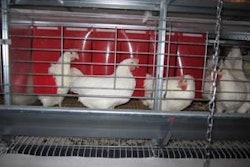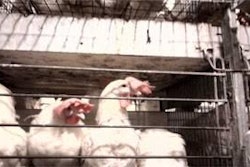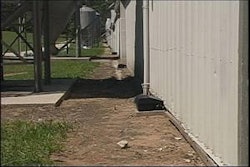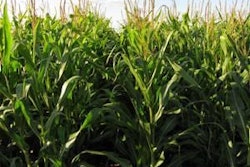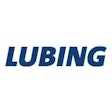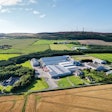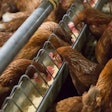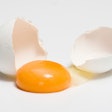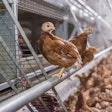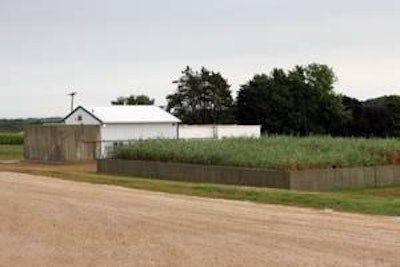
It shouldn’t be too surprising that Dave Thompson, owner of Pearl Valley Eggs, employs some unconventional technologies for waste management on his Illinois farm. Thompson, a former elementary school teacher, has grown his company over the last two and a half decades to include 1.1 million hens, an egg packing facility and an organic fertilizer operation.
Pearl Valley uses a reed bed biofilter to remove biosolids from the wastewater stream and convert them to plant material, and a manure composting system to convert layer waste into organic fertilizer products used coast to coast. Thompson has accomplished all of this in spite of the fact he comes from a non-farm background and his introduction to poultry husbandry came with an incubation project for his students.
From contract grower to business owner
The incubation project ultimately produced a backyard flock of hens for Thompson, which first led to a job with an egg producer, then later to a contract to produce eggs on his own farm, and finally a buyout that put him in the egg packing business. In 2001, Thompson was raising eggs for the Mallquist Butter and Egg Company and the owners wanted to retire. Thompson decided to buy the business and move the egg packing equipment to his farm.
Processing eggs includes washing the eggs, and this introduced the need to return 3,000 to 4,000 gallons of water back to the environment each day in an environmentally friendly manner. Initially, Pearl Valley Eggs employed a septic tank and drain field to return the used process water to the environment, but there were problems.
Thompson said that the egg wash water has a biological oxygen demand of between 2,000 to 3,000 milligrams per liter, and not all of the solids settled out in the septic tank. Solids transported by the water to the drain field can clog the holes in the pipes and shorten the life of the system. He said that he went through several septic systems trying to find one that worked. Thompson wanted a treatment system that would remove the BOD easily and economically without generating odor or insect problems.
SBR and reed bed biofilter
Pearl Valley Eggs' wastewater treatment system begins with a flow equalization tank that accumulates water throughout the day. At the end of the processing day, 3,000 to 4,000 gallons of wastewater is pumped into one of two sequential batch reactor tanks. The SBRs are aerated, and retention time in the SBR is two days. Aerobic bacteria in the SBR removes most of the BOD from the water.
At the end of the treatment cycle, the aeration is turned off in the SBR and suspended solids are allowed to settle out. Water with a BOD of around 10 milligrams per liter is decanted out of the tank where it is pumped to the septic drain field in cold weather, or to fields for crop irrigation in warm weather.
About once a week the aerators are turned off in the SBR, and, after settling, some of the biosolids are pumped off the bottom of the SBR to the 14,000-gallon solids tank. The solids tank is aerated, and every 10-14 days water with approximately 2% solids is pumped out of the solids tank to the reed bed. The reed bed is basically a concrete tank with rock and sand on the bottom where the reeds are planted. The reeds utilize the nutrients in the biosolids and the water is filtered by the sand and rocks until it drains to the bottom of the bed where it is pumped back to the SBR tanks.
Project and operating costs
The new treatment system has been operating since 2009, and Thompson reports operating costs of around $1,500 per month. An engineering firm designed the system, which cost around $1 million to build. Thompson served as the general contractor on the project to help keep the cost down, and a grant was obtained from the Natural Resources Conservation Service's Environmental Quality Incentives Program to offset $441,000 of the expense.
Thompson said that if he were starting from scratch, he would rebuild the same type of wastewater treatment system that he has now. The only change he would make is to cut the size of the reed bed by about a third. Thompson also said he might try using a reed bed to filter all of the decant water from the SBR before sending the water to the drain field. He said that the polishing done in the reed bed would remove more solids and BOD and would likely extend the life of the drain field. Native prairie grasses and wildflowers are grown on the one acre drain field.
Healthy Gro fertilizer
Between 60% to 70% of the Pearl Valley Eggs’ layer manure is composted on the farm and packed in bags, totes or sold in bulk as an organic soil amendment under the Healthy Gro brand. The business has been developed over a number of years, and golf courses as far away as Connecticut and California use Healthy Gro products.
All of Pearl Valley Eggs’ houses employ belt systems for daily manure removal. Five of the nine houses have overhead drying systems for the manure. The other four houses produce non-dehydrated manure with a moisture content of 60% to 70%.
In the farm’s two compost buildings, dehydrated and non-dehydrated manures are mixed with other materials according to formulas depending on the product being made. No water is added to the compost mixes. Thompson said that around 90 acres of wheat are raised on the farm and that wheat straw is one of the other ingredients utilized in the compost. Equipment is used to turn and aerate the compost each day prior to packaging.
There are around 400 acres of crop land at Pearl Valley Eggs’ farm, and this is amended once every three years with composted manure. Dehydrated manure is also sold to neighboring farmers for fertilizing crop land.
